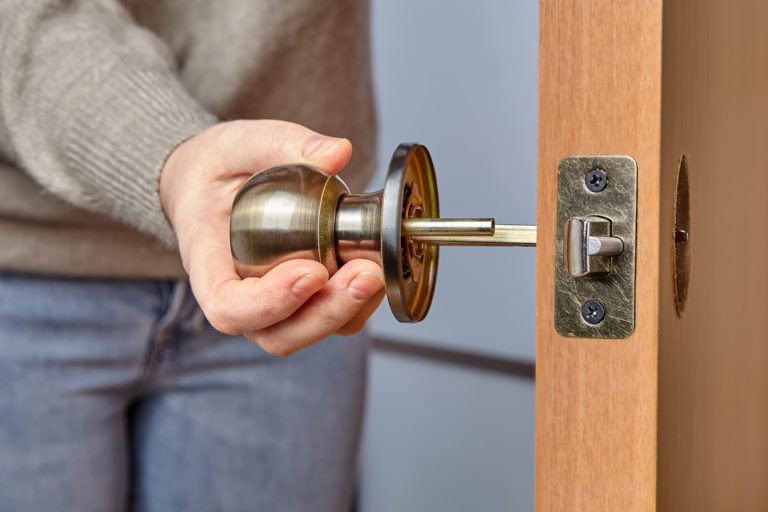Your locks are the primary defense against unauthorized access to your property, whether it’s your home, business, or vehicle. They play a crucial role in safeguarding your possessions, protecting your family, and maintaining privacy. However, the lock’s effectiveness depends on proper use. To ensure your locks provide the highest level of security, it’s important to follow basic lock safety guidelines. Here are some essential tips to help keep your property secure.
Select Top-Tier Locks for Maximum Security
Choosing high-quality locks is the foundation of good lock safety. Using inexpensive or low-quality locks can leave your home or business at risk of a break-in. Invest in high-security locks that comply with industry standards and are resistant to tampering and break-ins. Look for locks that are designed to resist picking, bumping, and drilling. Grade 1 locks certified by the American National Standards Institute (ANSI) are often the most reliable option for maximum security.
Upgrade Your Deadbolt Locks for Stronger Protection
To improve your home’s security, consider upgrading to high-quality deadbolts, which are some of the most secure locks available. A deadbolt with a one-inch throw provides additional strength by extending the bolt into the door frame. Opt for a deadbolt that is keyed on both sides for added security. A double-cylinder deadbolt, which requires a key to unlock both the inside and outside, makes it much harder for burglars to break in through windows next to the door.
Upgrade to Smart Locks for Enhanced Security
With technological advancements, smart locks have become a preferred choice for both homeowners and businesses. These locks provide the convenience of keyless entry, enabling you to unlock doors with your smartphone, keypad, or even biometric recognition such as fingerprints. Many smart locks offer additional features like tracking entry and exit activity and sending alerts if the door is left unlocked. However, it’s important to select a reputable brand with robust encryption to minimize hacking risks.
Never Forget to Lock Doors and Windows
It may seem like common sense, but one of the simplest ways to prevent break-ins is to always lock your doors and windows. Many people inadvertently leave their homes vulnerable by forgetting to lock entry points, especially when they are at home or stepping out briefly. Whether you’re in the backyard or running errands, ensure your home is securely locked. Additionally, make it a habit to lock doors and windows while you sleep, even if your neighborhood feels safe.
Never Conceal Spare Keys Outside Your Home
Hiding a spare key outside is a common but risky practice that can compromise your home’s security. Burglars are familiar with typical hiding spots like under the doormat, in a flower pot, or inside a fake rock. Instead of hiding a key outside, it’s safer to leave one with a trusted neighbor or use a key lockbox that only trusted individuals can access. If you must hide a key, choose a discreet location and consider using a high-security lockbox or biometric safe for extra protection.
Change the Locks When You Move Into a New Home
When moving into a new home or business, it’s crucial to rekey your locks. Previous owners or tenants may have distributed copies of their keys to friends, family, or maintenance workers, leaving you uncertain about who has access to your property. Rekeying is a cost-effective solution that guarantees only you have a set of keys. The process involves altering the lock’s internal mechanism so old keys no longer work, and new keys are created.
Store Spare Keys Safely in a Lock Box
Instead of hiding a spare key outside, consider placing a lock box near your front door for secure key storage. A lock box is a small, metal container with a combination or key entry, designed to keep your spare keys safe from unauthorized access. This ensures that only people with the access code can retrieve your keys, making it especially useful for those who rent out their home or have frequent visitors.
Check Your Locks Frequently to Ensure Security
Maintaining your locks regularly is key to ensuring their proper function. Over time, exposure to weather and regular use can cause locks to become rusty, stiff, or insecure. Inspect your locks frequently for any damage or issues. Lubricate them with graphite powder or a lubricant designed for locks to keep them working smoothly. If you encounter a lock that’s difficult to turn or a key that sticks, it’s important to repair or replace the lock without delay.
Avoid Sharing Keys to Keep Your Home Secure
Sharing keys might appear convenient, but it carries a security risk. Even if you trust those you give keys to, you can never be sure how many copies they’ve made or who else might have access. Limit key distribution to trusted individuals, and consider using smart locks or temporary access codes when you need to provide access to multiple people. Always retrieve keys from service workers after they’ve used them, and never leave them unattended.
Secure Your Home with Reinforced Doors and Security Bars
For enhanced protection, consider adding security bars to sliding doors or windows, which are commonly targeted during break-ins. Reinforcing door frames can also provide extra strength, making it difficult for intruders to force open doors. Many burglars aim for areas where locks are easily bypassed, so taking these steps to secure vulnerable areas can significantly reduce the risk of a break-in.
Enhance Safety with a Peephole or Door Viewer
Another key lock safety tip is to install peepholes or door viewers on your entry doors, particularly the front door. This enables you to see who’s at your door before opening it, which is crucial for avoiding unwanted visitors or potential threats. Modern digital door viewers, some with video capabilities, can alert you to anyone approaching your door, providing extra peace of mind, especially if you’re home alone.
Be Careful When Disposing of Old Keys
Old, unused keys can be a security liability if they fall into the wrong hands. Rather than discarding them in the trash, properly dispose of them by cutting them into pieces or taking them to a locksmith to be destroyed. Avoid leaving old keys lying around where they might be found and used to break into your home or business.
Locks are a key component in protecting your home or property, but their effectiveness depends on how well they are maintained and used. By following these lock safety tips, you can significantly lower the risk of break-ins or unauthorized access. Invest in high-quality locks, regularly check their condition, and always stay diligent in making sure your home or business is securely locked. Proper lock safety practices offer a simple yet effective way to keep your property protected from intruders.

